How to Lose Weight with Ginger Tea... and When to Avoid It
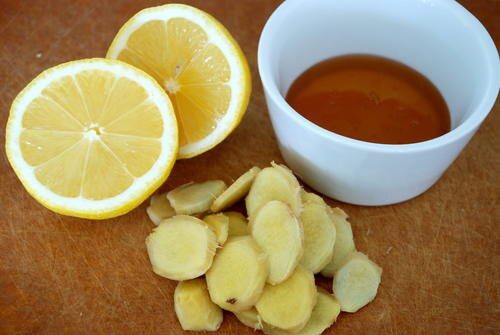

Written and verified by psychologist Valeria Sabater
Have you ever tried ginger tea?
It’s a root that has many medicinal properties, one of which is helping you lose weight in a healthy, natural way. Its pleasant, spicy flavor makes it a perfect partner to help you not only slim down, but it also alleviates pain and can be an amazing anti-inflammatory agent.
In today’s article, we want to explain how to best use ginger tea to lose weight. However, it’s also important to know when it’s not appropriate to consume this delicious tea.
Why drink ginger tea to lose weight?
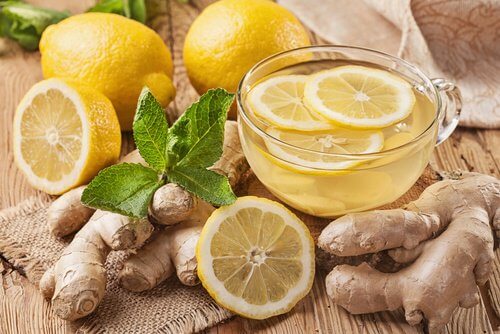
If you’ve noticed that you’ve been gaining a little weight, it’s time to take action.
Ginger tea is intended as a complement to a healthy weight loss diet. That means it’s important that you reduce your daily fat intake and try to eat better overall, by eating a well-balanced diet and drinking plenty of water.
If you also add a little exercise and a cup of ginger tea after each meal, you’ll reach your ideal weight within no time. Yes, it requires effort on your part, but there’s no doubt that it’s worth it.
Let’s find out why ginger tea helps promote weight loss:
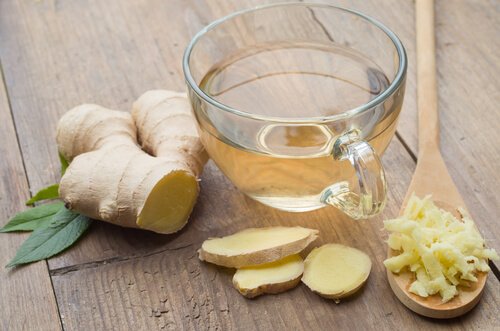
1. It facilitates better digestion
One of the greatest benefits of ginger is that it promotes better digestion.
Do you know why?
It helps induce the regular movement of the stomach and large and small intestines. This means that your food is processed better, more easily, and you get adequate nutrition by ridding your body of what it doesn’t need.
2. It’s thermogenic and speeds up your metabolism
Do you know what it means when we say a food has thermogenic properties? It means it actually raises your body temperature, helping your body increase its metabolism to burn more fat.
Ginger is one of the most effective plants to help you lose weight naturally, and its thermogenic properties are one of its greatest benefits.
3. It helps you feel fuller
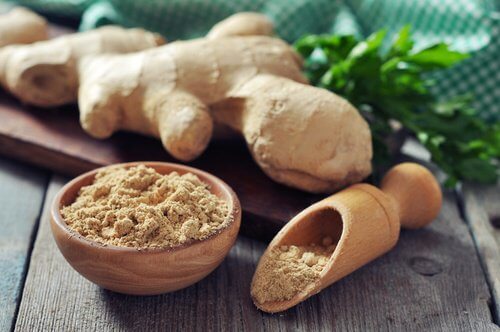
You’ve probably had this happen to you: you finish lunch, go back to work, and after a few minutes, you already feel a gnawing emptiness in your stomach. You’re still hungry! And that’s when you make the mistake of grabbing the nearest item on hand.
Ginger is a known appetite suppressant, making it an appropriate choice to drink after each meal to keep you from wanting more. If you feel fuller, you won’t be tempted to snack between meals and that can hopefully hold you over until dinner.
Ginger helps eliminate cravings and the desire to eat between meals. Why not try it out today?
4. Ginger is a wonderful antioxidant
Ginger tea is very high in antioxidants, which means that it helps your body rid itself of all the toxins that cause inflammation and disease. Your organs will function better and that helps you burn fat more easily.
It’s a great natural way to improve your health!
How to make ginger tea
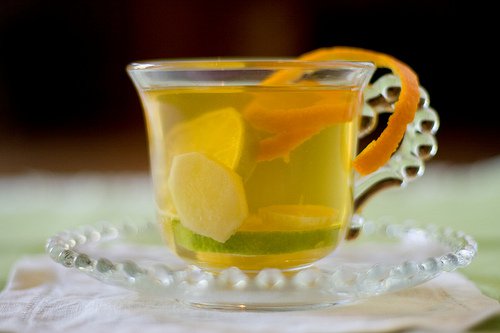 Ingredients
Ingredients
- 1 cup of water (200 ml)
- 30 grams of ginger (chop the root into pieces the width of your finger)
- The juice of ½ lemon
- 1 tablespoon of honey (20 grams)
Preparation
Ginger tea is simple to make.
- First, you should heat your cup of water in a kettle or teapot made of copper or clay. Typically, teapots made from aluminum or metal don’t preserve the medicinal properties of certain plants, so you should avoid using those materials if possible.
- Bring the water to a boil, add the ginger, and allow it to simmer for 20 minutes. Once it’s done, turn off the heat and let it steep for 10 minutes.
- Pour this tea into your favorite mug and add the juice of half a lemon. Stir it well and add the tablespoon of honey. It’s delicious!
You might also like:
Discover the Benefits of Honey
When should you drink it?
- Try starting out with two cups a day after lunch and dinner, for 15 days. Take a week off, and then start again.
- Always remember to keep a healthy diet and get plenty of exercise.
When should you avoid consuming ginger?

- It’s not a good idea to consume ginger or ginger tea if you’ve been prescribed medications to treat diabetes or high blood pressure. Such drugs shouldn’t be taken with this herb.
- If you’re pregnant or breastfeeding, you should also avoid ginger.
All cited sources were thoroughly reviewed by our team to ensure their quality, reliability, currency, and validity. The bibliography of this article was considered reliable and of academic or scientific accuracy.
- Maharlouei N, Tabrizi R, Lankarani KB, Rezaianzadeh A, Akbari M, Kolahdooz F, Rahimi M, Keneshlou F, Asemi Z. 2018. The effects of ginger intake on weight loss and metabolic profiles among overweight and obese subjects: A systematic review and meta-analysis of randomized controlled trials. https://www.ncbi.nlm.nih.gov/pubmed/clipboard
- Adei S., Prakash J., Chemical composition and antioxidant properties of ginger root. Journal of Medicinal Plants Research, 2010.
- Mansour MS., Ni YM., Roberts AL., Kelleman M., et al., Ginger consumption enhances the thermic effect of food and promotes feelings of satiety without affecting metabolic and hormonal parameters in overweight men: a pilot study. Metabolism, 2012. 61 (10): 1347-1352.
- Masuda Y., Kikuzaki H., Hisamoto M., Nakatani N., Antioxidant properties of gingerol related compounds from ginger. Biofactors, 2004.21 (1-4): 293-6.
This text is provided for informational purposes only and does not replace consultation with a professional. If in doubt, consult your specialist.








